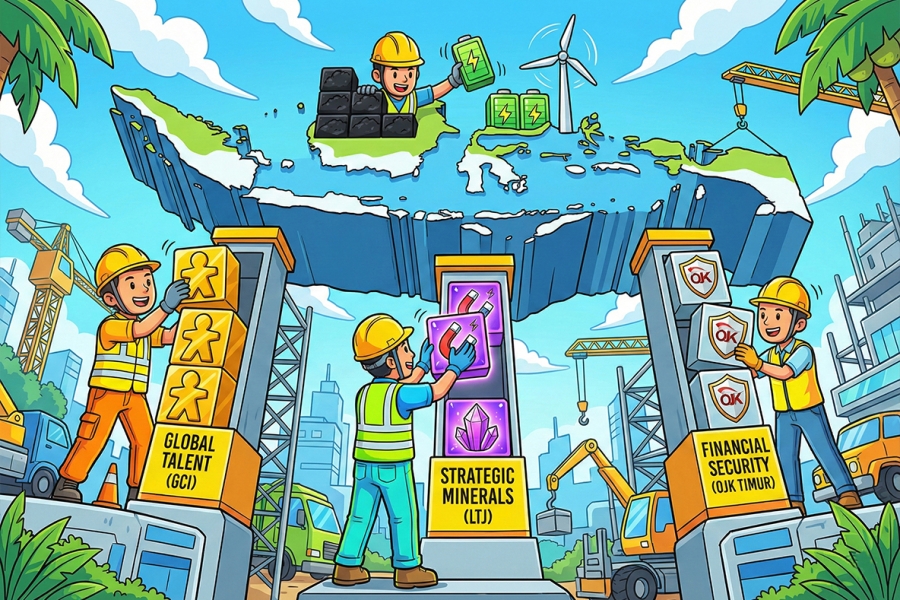
The Indonesian government is currently undertaking strategic policy consolidation across various sectors, ranging from immigration and mining to financial services. One notable breakthrough is the introduction of the Global Citizenship of Indonesia (GCI) program. This initiative opens up opportunities for former Indonesian citizens (WNI), people of Indonesian descent, and children from mixed marriages to obtain indefinite stay and work permits in the country. This policy serves as a direct response to the phenomenon of brain drain and is designed to attract talented diaspora to return and contribute, offering a non-Dual Citizenship alternative.
In the industrial sector, significant attention is being paid to the management of strategic minerals. The Ministry of Energy and Mineral Resources (ESDM) officially strengthened the regulation of Rare Earth Elements (REE), also known as Logam Tanah Jarang (LTJ), through Ministerial Regulation No. 18 of 2025. This rule ensures a structured governance framework, granting priority to State-Owned Enterprises (BUMN) in the exploitation of REE. This reinforcement is vital given that REE is a key component for the development of high-tech industries and the national electric vehicle ecosystem.
Meanwhile, structural strengthening is also underway in Eastern Indonesia. The Financial Services Authority (OJK) inaugurated its new office in Manokwari, covering West Papua and Southwest Papua Provinces. This expansion aims to strengthen the supervision of the financial services sector while boosting financial literacy and financial inclusion for local communities.
Amidst domestic development efforts, Indonesia is also tackling global challenges, particularly in energy transition. South Korea's decision to shut down 40 coal-fired power plants (PLTU) by 2040, as part of its global environmental commitment, sends an important signal. Although this gradual shutdown is expected to have no immediate significant impact on Indonesian coal exports for companies like ADRO, GEMS, and PTBA, it underscores the necessity of energy diversification and long-term planning.